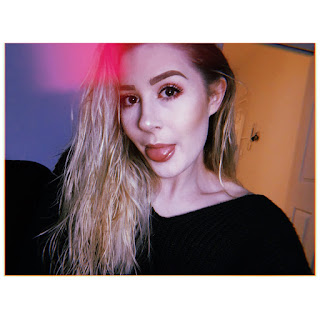In this first picture it was April 2016, I was 18 years old and I was in my first ‘adult’ mental health hospital. This first picture captures my whole admission. Lost, misunderstood and scared. I was under weight for my height as I stopped eating and drinking which resulted in my physical health deteriorating as well as my mental health. In this admission I was self harming daily in various ways. I was finding any object I could to cut with, I was banging my head against walls and corner of wardrobes, I was tying ligatures in hopes I would pass out and not wake up and wanting to end my own life was a daily battle. I felt so misunderstood and out of control and, the last thing I wanted for myself was to be like this. I kept thinking to myself, ‘I have a family, future and goals to achieve’ but in those moments It honestly felt like I had no way out which led me to believing that I was never going to recover. I thought that was the way I was going to be for the rest of my life.
I was then transferred to a specialist Personality Disorder ward after that hospital realized that they couldn’t provide the care I needed anymore because I was too ‘complex’. I don’t like to use the word complex much but, in their words, I guess at the time that is what I was. This new hospital was where I received the appropriate treatment and care that I needed for my diagnosis of EUPD. I had group DBT therapy twice a week and an individual therapy session once a week and I’m not going to sugar coat, it was difficult and sometimes I thought I’d never get to the end of it! Having such an understanding/hard working therapist and the incredible MDT on my ward I did managed to get my life back!
2 years on and after A LOT of hard work (and a good selfie), I am living my life to the fullest, grabbing opportunities with both hands and I am for the first time since 2016 (if not longer) truly happy. I was discharged from hospital on the 27th February 2018 and I still wake up grateful everyday that those many suicide attempts didn’t work and that I was saved.
Just before I turned 18, I never imagined having a future or a life however in 2 weeks time I will be celebrating my 21st Birthday and it overwhelms me with pride that I have made it. I now also have a part time job which has been a huge positive factor for my recovery, I have been accepted into college for September to begin my access course in social sciences (in the hopes to be accepted into University next year to start my Occupational Therapy degree).
Most importantly I am surrounded by amazing family and friends that have been by my side since day 1 and I am forever thankful for them.
I’ve finally got SO much positivity in my life and I know it’s because I decided that ending my life back then and giving up was NOT an option.
I just want people to know that if you suffer with mental health issues or you’re right at the beginning of your recovery that things do get better. No matter how cliché that might sound. If you allow yourself time to heal it WILL happen and you will flourish and achieve all of things you want to in life.
I
want to end on this note…
Take care of yourself.
It’s the most important thing you can do!
Take care of yourself.
It’s the most important thing you can do!







